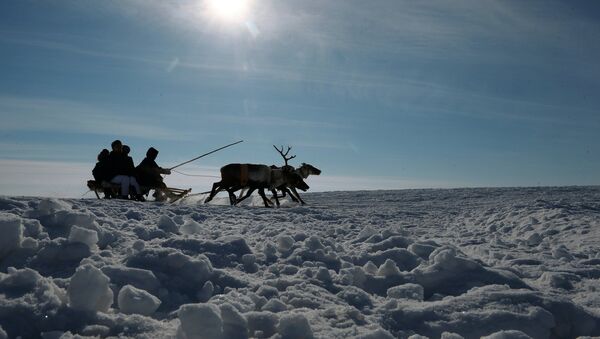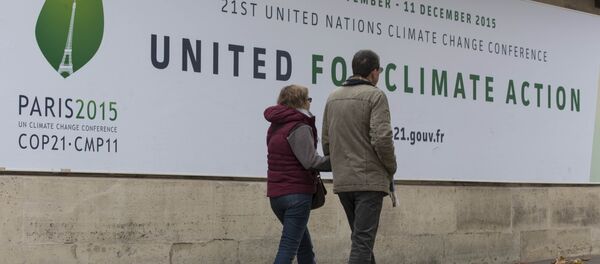"We are deeply concerned about the impacts of climate change on sea ice and our way of life," said the prime minister of the northwestern Canadian territory of Nunavut, Peter Taptuna. "We stand before you today, with the Government of Greenland and the Inuit Circumpolar Council, asking the United Nations to reach an agreement that accounts for the impacts of climate change on the Arctic."
The Arctic is experiencing the acute ramifications of climate change, such as permafrost thaw, extreme increases in temperatures, loss of glacier and sea ice, as well as damage to Arctic wildlife.
Greenland's Finance, Mineral Resources and Foreign Affairs Minister Vittus Qujaukitsoq said his country has an "important responsibility in promoting international climate research."
"Our joint Inuit voice and our traditional know-how from across the Arctic should be heard and included in international policy-making. Most importantly, Arctic indigenous peoples have to be ensured equal access to the right to development. Indigenous peoples' rights and interests must be included in the COP21 outcome document," Qujaukitsoq said.
Inuit Circumpolar Council Chair Okalik Eegeesiak urged the negotiators from nearly 200 countries, expected to reach a landmark climate change agreement by December 11, to draw on the experience of indigenous people, who are "most directly impacted by climate change."
"The Paris agreement and its implementation must therefore respect the rights of indigenous peoples for the betterment of our planet" Eegeesiak said in a statement.
French Foreign Minister and COP21 President Laurent Fabius said, on Monday, that he expected the full text of a comprehensive agreement to tackle climate change by Thursday so that it could be adopted by leaders on Friday.



